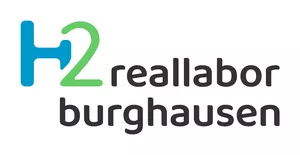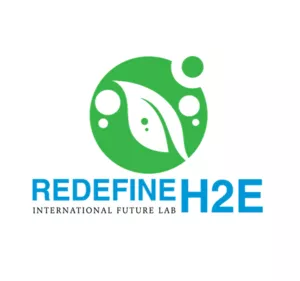- GIS-based suitability analysis and spatial optimization for Biomass-to-Liquid and Power-to-Liquid sustainable fuel production in Australia. Journal of Cleaner Production (489), 2025, 144615 more…
- Technical evaluation and life-cycle assessment of solid oxide co-electrolysis integration in biomass-to-liquid processes for sustainable aviation fuel production. Applied Thermal Engineering, 2025, 124882 more…
- Techno-economic assessment and comparison of Fischer–Tropsch and Methanol-to-Jet processes to produce sustainable aviation fuel via Power-to-Liquid. Energy Conversion and Management, 2024 more…
- Electrification of gasification-based biomass-to-X processes – a critical review and in-depth assessment. Energy & Environmental Science 17 (3), 2024, 925-973 more…
- Insights into Fischer–Tropsch catalysis: current perspectives, mechanisms, and emerging trends in energy research. Frontiers in Energy Research, 2024 more…
- Polygeneration Of Power And Methanol From Biogenic Residues: A Techno-Economic-Assessment. 37th INTERNATIONAL CONFERENCE ON EFFICIENCY, COST, OPTIMIZATION, SIMULATION AND ENVIRONMENTAL IMPACT OF ENERGY SYSTEMS, 2024 more…
- Experimental Investigation of Naphthalene Induced Degradation of Reversible Solid Oxide Cells Operated on Bio-Syngas. Journal of The Electrochemical Society, 2024 more…
- A TWO-PHASE OPTIMIZATION METHOD FOR THE EXPANSION PLANNING OF DISTRICT HEATING SYSTEMS USING DIFFERENT DISCRETIZATION TECHNIQUES. 37th INTERNATIONAL CONFERENCE ON EFFICIENCY, COST, OPTIMIZATION, SIMULATION AND ENVIRONMENTAL IMPACT OF ENERGY SYSTEMS, 30 JUNE – 4 JULY, 2024, RHODES, GREECE, 2024 more…
- CESTEA: The TUM Chair of Energy Systems Techno-Economic Analysis Method. TUM-CES White Paper Series "Energy System in Transition", 2024 more…
- Kinetic Study of Carbon Deposition in Solid Oxide Fuel Cells (SOFCs). ECS Transactions 111 (6), 2023, 715-729 more…
TUM School of Engineering and Design
Chair of Energy Systems
Prof. Dr.-Ing. Hartmut Spliethoff
At LES, the provision of carbon-containing synthesis gases for the production of synthetic fuels is investigated using simulations and experiments within the framework of research projects.
A number of pilot plants for the gasification of waste and biogenic solid fuels are available for this purpose. The entire spectrum from gasification kinetics to the demonstration of the entire process chain is covered: biomass -> synthesis gas -> conversion.
Website: Research at LES
Contact: Sebastian Fendt
The focus of research in the area of conversion at the LES is divided into two parts:
On the one hand, high-temperature solid oxide cell systems are being developed and investigated. The research focuses on reversible operation (fuel cell and electrolysis) with carbon-containing gases (biogas, synthesis gas, etc.) in order to utilize the advantages of the system for efficient and system-beneficial application in the energy system.
On the other hand, the synthesis of methane is being researched. For this purpose, various reactor concepts for different process configurations (CO2-PtX, biomass gasification with electricity integration, innovative biogas conversion) are examined and optimized. The work takes place both simulatively and experimentally.
Website: Research at LES
Contact: Florian Kerscher, Sebastian Fendt
Energy system modeling and operational planning of different types of power plants in a European context.
Definition of techno-economic framework conditions and determination of the potential of technologies in the energy supply
Estimation of the need for Power-to-X in an integrated energy system using coupled energy system studies.
Website: Research at LES
Contact: Sebastian Fendt

Transformation of the chemical industry in ChemDelta Bavaria towards a sustainable hydrogen-based circular economy
At LES, the research focus is on the development and evaluation of innovative processes for the provision of electricity, heat and synthetic energy sources. Based on the sustainability and cycle principle, the initial materials are always unused residual material flows or waste heat in addition to renewable energies. For this purpose, experimental and simulative investigations as well as an evaluation via system studies are carried out. The LES coordinates the TUM.Hydrogen and PtX network.
Type: Collaborative project: H2 Reallabor Burghausen – ChemDelta Bavaria
Funding: German Federal Ministry of Education and Research (BMBF)
Funding code: 03SF0705B
Runtime: 01.04.2023 - 31.03.2027
Website: H2-Reallabor - Reallabor Burghausen
Contact: Vincent Dieterich, Sebastian Fendt
Further Information: TUM Kooperationsprojekt

Renewable Electricity Dispatch and Expendable
Feedstock-Integrated Net-Zero-Emission Hydrogen Economy
As part of the future lab REDEFINE Hydrogen Economy, research at the LES focuses on innovative technologies for the production of green hydrogen. Under the leadership of Prof. Spliethoff, the Chair of Energy Systems is coordinating both the overall project and the "e-Gas" and "rSOC" work packages.
An important part of the collaboration in the joint project is the research and further development of electrically driven gasification for the conversion of solid source materials such as biomass residues or waste materials into high-calorific, H2-containing synthesis gas. To this aim, LES is working closely with partners from the Lithuanian Energy Institute and Luleå University of Technology Another research focus is the investigation of reversible high-temperature solid oxide cells, known as rSOCs. These enable both efficient fuel cell and electrolysis operation. In addition, the use of co-electrolysis will also be investigated. The coupling of rSOCs under pressure is particularly of interest in this context.
Furthermore, the Future Lab for Green Hydrogen has welcomed diverse guest scientists to the TU Munich since 2022.
Type: Collaborative project: International Future Lab REDEFINE H2E
Funding: German Federal Ministry of Education and Research (BMBF)
Funding code: 01DD21005
Runtime: 01.12.2021 - 30.11.2024
Website: REDEFINE H2E
Contact: Sebastian Bastek, Sebastian Fendt
Further Information: TUM Cooperation Projects
| BabiTER | Atmospheric entrained flow gasification, investigation of reaction kinetics. |
| BOOSTER | Biomass entrained flow gasifier |
| Wire Mesh Reactor | The wire mesh reactor allows for small-scale pyrolysis and gasification of solids under circumstances comparable to those in industrial facilities. |
| PiTER | Pressurized entrained flow reactor for the investigation of gasification kinetics and the release of trace elements under near-industrial conditions. |
| SNG Test Rig | The SNG pilot plant is used to investigate the production of synthetic natural gas (SNG) from biomass |
| SOFC Single Cell Test Rig | Investigation on planar solid oxide fuel cells. |
| SOFC StaTe | Investigation on fuel cell stacks. |
Hydrogen is currently on everyones lips and is being discussed - now more than ever - as an essential component of the energy transition.
Most people know that hydrogen can be utilized to operate fuel cells. But what else do we need to know about hydrogen, its production and application?
The lecture "Hydrogen-based Technologies in the Energy System" is aimed at all interested students and provides an in-depth understanding of the technologies required in a hydrogen-based energy and material system. The complex interactions within a strongly coupled energy and material system are first shown from a system perspective. In terms of hydrogen production technologies, the event will focus on both electrochemical and thermochemical processes. The entire spectrum of hydrogen production technologies will also be covered, from gray hydrogen to green hydrogen.
Hydrogen already plays an important role in various industrial applications (e.g. steel etc.). These applications as well as storage and distribution are the focus of this event. Hydrogen, power-to-X technologies and sustainable carbon sources are the key factors in closing the carbon cycle in a 100% sustainable energy and material system. The event will therefore also cover the main synthesis paths for hydrogen-based energy carriers and basic chemicals. Finally, current research activities in the field of hydrogen supply, utilization and integration into energy systems will be presented to provide a direct insight into the current research community.
| Module ID | ED180007 |
|---|---|
| Scope | 2 SWS, 3 ECTS |
| Semester | Summer semester |
| Language | German |
| Tutor for the lecture | Theresa Hauth |
More information: TUMonline
As part of the hydrogen seminar, participants will develop individually selected example concepts for hydrogen-based technologies in the energy system and evaluate them on the basis of a techno-economic analysis and the socio-political framework conditions.
Based on the associated lecture, the independently developed concepts are recorded in writing in the form of a final report and also presented at a final event in front of a jury of experts from science and industry. Finally, a peer review report is written in which another final report is critically scrutinized.
| Module ID | ED180027 |
|---|---|
| Scope | 2 SWS, 5 ECTS |
| Semester | Winter semester |
| Language | German |
| Tutor for the lecture | Theresa Hauth, Marcel Dossow |
More information: TUMonline